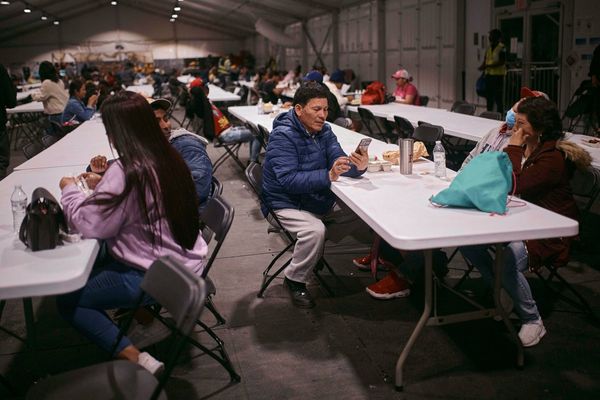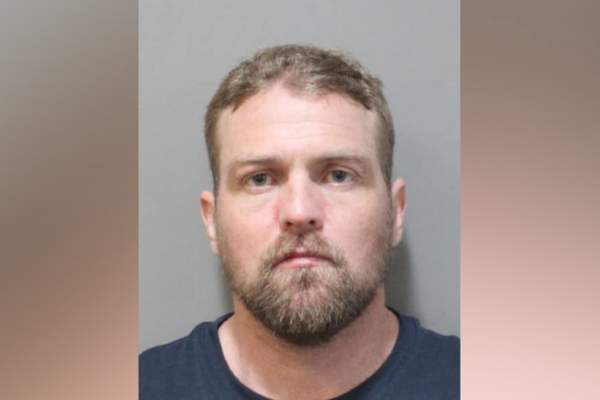
Mostar, Bosnia & Herzegovina - When 67-year-old Ramiz Tiro was finally released from the concentration camps run by Croat forces during the war in Bosnia and Herzegovina in 1994, he felt like an animal.
Starved and dehydrated, he had lost 33kg. Having spent 262 days in "hell", as he described it, he had forgotten what it felt like to be treated as a human being.
"I thought I wouldn't make it out alive because you lose hope," Tiro told Al Jazeera.
"I was tortured so much; they made an animal out of me. There was psychological [torture], hunger, thirst, non-stop labour, working on the front line amid shootings; you didn't feel like you were going to survive and that there would ever be an end to this."
It was under the leadership of the so-called Croat wartime statelet "Herceg-Bosna" and its military (HVO) that thousands of Bosnian Muslims (Bosniaks) were rounded up from their homes and transferred to a network of concentration camps where they were regularly abused - enduring severe beatings, psychological torture, hunger and thirst while others were shot dead.
Detainees were forced to carry out dangerous work on the front lines for the HVO - digging trenches, building forts and picking up dead bodies - and were forced to serve as human shields, as confirmed by the International Criminal Tribunal for Former Yugoslavia, (ICTY) in 2017.
Some detainees were forced to drink their own urine, others were made to eat shoe polish and grass off the ground. Another detainee was subjected to electric shocks until he blacked out, the ICTY noted.
In another case, the Croat military police forced a Bosniak to lick his own blood off the floor so that "the blood of a ‘Balija’ [derogatory word for a Bosniak Muslim] does not remain on Croatian soil," they told him.
It was under these conditions that Tiro, as prisoner number 320243, spent nine months between 1993 and 1994 in three detention centres including "Dretelj", the most notorious camp in the former barracks of the Yugoslav National Army (JNA) in the so-called Croatian Republic of Herceg-Bosna.
Removing Muslims
This past week marked the 25th anniversary of the declaration of the unrecognised statelet of Herceg-Bosna as a Croatian republic, with Mostar designated as its capital city.
It was formed in Bosnia and Herzegovina in 1991 with the intent to secede from Bosnia and Herzegovina and unite with Croatia, as the ICTY confirmed.
In November 2017, the ICTY sentenced six high-ranking officials of Herceg-Bosna to 111 years in prison.
They were found guilty of contributing to the joint criminal enterprise (JCE), which had as its ultimate goal creating Croatian territory in Bosnia and Herzegovina, including Mostar - the southern city besieged for nine months.
Croatia was also complicit in the JCE, the ICTY said.
Crimes committed against Muslims between 1993 and 1994 "were not random acts of a few unruly soldiers", the ICTY stated in 2013.
"On the contrary, these crimes were the result of a plan drawn up by members of the JCE whose goal was to permanently remove the Muslim population from Herceg-Bosna."
Croat forces began their new wave of arrests in May and July 1993.
At night, apartment by apartment, one block after the other, separation awaited each Bosniak family. The men were transported to camps and the rest of the family was typically expelled from their homes in west so-called Croat Mostar to east so-called Muslim Mostar.
Tiro was arrested on the night of June 30, 1993, with the rest of the Muslim men from his neighbourhood, and transported to Heliodrom, a former JNA military facility.
Once the heavy steel doors opened, he saw a room packed with hundreds of men sitting on the concrete floor, their faces drained. There was barely room to stand, let alone sit, Tiro said.
However, the 19 days that he later spent in Dretelj were by far the worst.
"They wouldn't open the door for days, leaving us shut inside without any food or water," Tiro said.
When they were given a meagre ration of food, they had only a few seconds to eat it under threat of punishment.
All the while, Tiro asked himself: Why? Why am I being arrested? Why am I being tortured? Why are we being expelled from our homes when our families have lived here for the past 500 years?
“We went to school together [with Croats], we lived together and all of a sudden he’s my enemy now?" he said.
Tiro recognised one of the soldiers who would lock them in as a former schoolmate.
Tiro asked him, “Why is this being done to us? I’m just like you."
“No, no, you’re ‘balije’ [Muslims]. You’re the enemy of our state,” the soldier said.
“This was unfathomable for me,” Tiro recalled. “But I realised what it was about during my time as a prisoner.”
Serving as a human shield
At Heliodrom, being picked from the rows of detainees for labour was a "nightmare".
On some days, they knew they would face "a guaranteed death", Tiro said, working on the front line amid clashes between HVO and Bosnian forces (ARBIH).
“When you went for labour on these days, you weren’t sure if you were going to come back,” Tiro said.
It was here that the majority of detainees would be killed. A truck would leave with 60 detainees in the morning and come back in the evening with only 40 or 50.
Those who survived were covered in blood and in shock.
Tiro's turn to work on the front line as a human shield came on Saturday, August 14, 1993 - the most frightening day in his life.
Forty men were brought to the front line in the middle of Mostar. An HVO soldier ordered them to head into the clearing and build a protective wall out of sandbags just 10 metres away from ARBIH's position, putting its security at stake.
They hesitated, knowing they would surely be shot at.
"Get out!" the soldier shouted at them. “Or do you want me to kill you all now on the spot?” he said, aiming his loaded gun at them.
With no choice, they headed for the clearing, carrying sandbags two by two. Halfway there, bullets began hitting the sandbags, sending sand spilling onto the ground. Another bullet hit a branch above them.
How many warning shots will there be? Tiro thought to himself.
But there was no turning back or running away as the HVO soldier who had given them the orders kept them in his crosshairs, threatening to shoot them if they did.
"We were surely headed towards death. I was just waiting for the moment when I would fall to the ground," Tiro said.
They set down their first sandbags unscathed, but when they turned back to for more, an explosion went off and they found themselves on the ground.
Tiro had been hit in the head by shrapnel. Blood ran onto his face. He could hardly see. He held his hand to his head stop the bleeding but felt as if a large part of his head was missing. His fellow detainees were also injured, covered in blood.
Luckily, the shrapnel hadn't damaged his brain, the surgeon told him later on when he regained consciousness in the hospital.
His friend and fellow detainee had also survived after undergoing surgery to repair veins and arteries that were ruptured in the explosion.
In spite of the danger, sometimes hunger was so dire in the camp that detainees would risk their lives and volunteer to work on the front lines, just so they could get a tin of food.
Twenty-five years later, the search continues for the bodies of 700 killed detainees, according to the Association of Mostar Concentration Camp Detainees.
To this day, Tiro still has trouble sleeping and suffers from pain. Despite everything he's been through, he says he doesn't hold on to negative feelings.
"By writing my book [Dretelj: At the Door to Hell], I was able to return to my old self," Tiro said.
"It's important to tell our stories so that we don't forget and so that it doesn’t happen ever again.”







